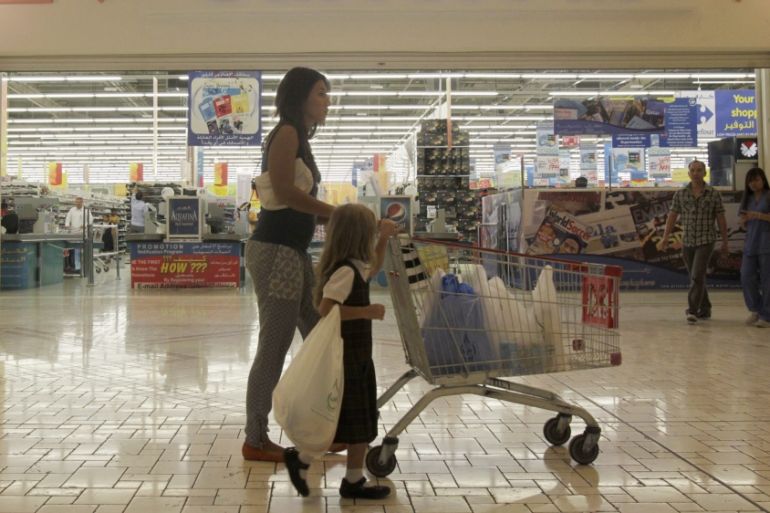Qatar in talks with Turkey and Iran on providing food
Qatar is seeking to secure food and water supplies to stave off possible shortages amid worsening Gulf diplomatic rift.

Qatar is in discussions with Iran and Turkey about securing food and water supplies to stave off possible shortages two days after its biggest suppliers, the United Arab Emirates and Saudi Arabia, cut trade and diplomatic ties, a government official said on Wednesday.
“We are in talks with Turkey and Iran and other countries,” said an official, who spoke to Reuters news agency on condition of anonymity due to the sensitivity of the subject, adding that the supplies would be brought in through Qatar Airways cargo flights.
The official said there were enough grain supplies in the market in Qatar to last four weeks and that the government also had large strategic food reserves in Doha.
The head of Turkey’s main exporting trade body told Reuters on Wednesday that Turkish exporters are ready to meet the demand for food and water in Qatar.
READ MORE: Qatar-Gulf crisis – Your questions answered
Saudi Arabia, the United Arab Emirates (UAE), Egypt and Bahrain severed relations with Qatar and closed their airspace to commercial flights on Monday, charging it with financing “militant” groups. Qatar vehemently denies the accusations.
This is the worst split between powerful Arab states in decades.
The moves isolating Qatar are disrupting trade in commodities from crude oil to metals and food, and deepening fears of a possible jolt to the global gas market, where the Gulf state is a major player.
|
|
Food imports are affected as Saudi Arabia closed its land border with Qatar, stranding thousands of trucks carrying supplies.
Qatar, a country heavily dependent on food imports to feed its mostly foreign population of 2.6 million, has assured residents it has taken measures to ensure that normal life continues.
The Ministry of Economy and Commerce released a video on Tuesday that showed supermarket shelves stocked with food and other goods after citizens and residents crowded into stores on Monday to stock up, fearing shortages.
Qatar’s ports and airports remained open to trade with countries not taking part in the Saudi-led boycott on Wednesday, a government official said.
“We have no problem with food supplies,” Qatar’s foreign minister told CNN on Tuesday. “We have strategic reserves in place since 2014, we don’t see that life will be affected.”
Although Qatar is located in a volatile region of the world, its huge foreign currency reserves and comparatively small population mean arranging adequate new sources of food imports in an emergency is possible.
Support from Turkey
Mehmet Buyukeksi, the head of Turkey’s main exporting trade body Turkish Exporters Assembly (TIM), told Reuters on Wednesday that Turkish exporters are ready to meet the demand for food and water in Qatar.
Al Jazeera’s Sinem Koseoglu, reporting from Istanbul, said the Turkish government and some opposition parties had expressed support for Qatar during the rift and had said its isolation was not acceptable.
“Since the tension between Qatar and other Gulf states has risen, Turkey has shown great support for Qatar – not only on a political level but on a public level as well,” she said.
“On the public level, social media has been showing great support to Qatar with the hashtag ‘Qatar is not alone’,” she said.
Pro-Qatar protests are also planned in Istanbul for Wednesday night.
OPINION: The GCC will ride out the storm
Koseoglu also said there were reports that legislation to deploy Turkish troops to Qatar, first agreed in May, could be fast-tracked through Turkey’s parliament on Wednesday night.
Turkey is a key ally of Qatar and is setting up a military base in the country which also hosts the largest US airbase in the Middle East, Al-Udeid.
Meanwhile, Iranian Foreign Minister Mohammad Javad Zarif arrived in Turkey on Wednesday, saying there was a need for close discussions with Turkish officials on “worrying” developments in the region.
Zarif was scheduled to meet President Recep Tayyip Erdogan and Foreign Minister Mevlut Cavusoglu for talks on bilateral and regional issues, Turkish officials said.
Iran shares access with Qatar to the world’s biggest natural gas field.